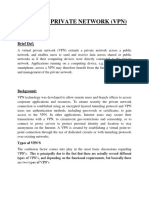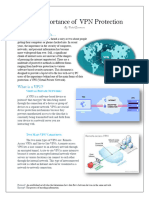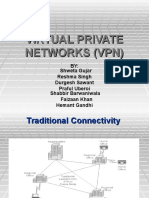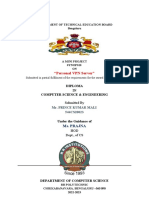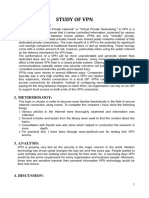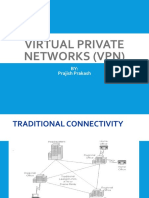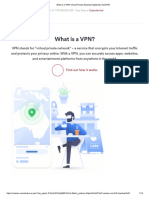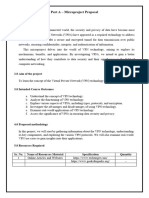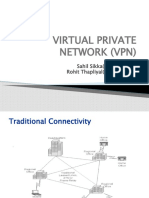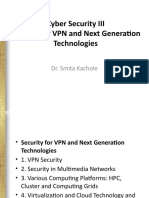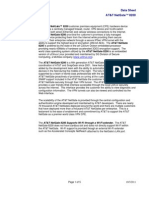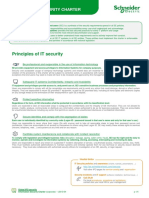0% found this document useful (0 votes)
16 views6 pagesModule 14
A Virtual Private Network (VPN) creates a secure and encrypted connection over public networks, allowing users to access private networks remotely. VPNs enhance online privacy and security by masking IP addresses and encrypting internet traffic, making them useful for streaming, gaming, and secure browsing. While generally legal, the use of VPNs can be restricted in certain countries, and users should consider factors like speed and server availability when choosing a VPN provider.
Uploaded by
ajkumar13121Copyright
© © All Rights Reserved
We take content rights seriously. If you suspect this is your content, claim it here.
Available Formats
Download as DOCX, PDF, TXT or read online on Scribd
0% found this document useful (0 votes)
16 views6 pagesModule 14
A Virtual Private Network (VPN) creates a secure and encrypted connection over public networks, allowing users to access private networks remotely. VPNs enhance online privacy and security by masking IP addresses and encrypting internet traffic, making them useful for streaming, gaming, and secure browsing. While generally legal, the use of VPNs can be restricted in certain countries, and users should consider factors like speed and server availability when choosing a VPN provider.
Uploaded by
ajkumar13121Copyright
© © All Rights Reserved
We take content rights seriously. If you suspect this is your content, claim it here.
Available Formats
Download as DOCX, PDF, TXT or read online on Scribd
/ 6












